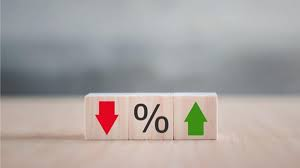Investors often find themselves at a crossroads when comparing fixed deposits vs modern investments like mutual funds and stocks. While fixed deposits have long been a trusted choice for many, misconceptions surrounding their relevance in today’s investment climate persist. In this article, we’ll bust some common myths about fixed deposits and explore how they stack up against modern investment avenues.
Get high ROI with 8.8% on Fixed Deposits. Invest today
Myth 1: Fixed Deposits Offer Low Returns
One of the most prevalent fixed deposit myths is that they provide meagre returns compared to modern investment options. However, this notion doesn’t paint the complete picture. It’s true that fixed deposits may not match the potential high returns of equity investments. Still, they offer assured and stable returns, making them an attractive choice for risk-averse investors.
Consider this example:
Let’s say you invest ₹1 lakh in a fixed deposit offering a 6% interest rate for a 3-year tenure. Then, you’ll earn ₹18.801 as interest income. This might seem modest compared to the possibilities of stocks or mutual funds. But, the guaranteed nature of these returns provides a sense of financial security that many investors prioritise.
Myth 2: Fixed Deposits Are Outdated
Another common misconception is that fixed deposits are a relic of the past and are unsuitable for modern investment portfolios. However, this couldn’t be further from the truth. Fixed deposits continue to be a relevant and integral part of a well-diversified investment strategy.
Here’s why:
- Capital Protection: Fixed deposits ensure the safety of your principal amount, as they are not subject to market fluctuations.
- Loan Against FD: Fixed deposits can serve as collateral for loans, allowing you to access credit without disrupting your investment.
- Liquidity: Most banks and financial institutions, including Airtel Finance, offer the flexibility to withdraw your FD prematurely. This provides access to funds during emergencies.
Myth 3: Fixed Deposits Are Not Tax-Efficient
Some investors believe that fixed deposits are not tax-efficient compared to modern investment options. It’s true that interest earned on fixed deposits is taxable as per your income tax slab. Meanwhile, there are ways to optimise your tax outgo.
Suppose you fall in the 30% tax bracket. Then, investing in a 5-year fixed deposit can help you save taxes. The interest earned on such deposits is taxable. But, you can avail of a deduction of up to ₹1.5 lakh under Section 80C of the Income Tax Act.
Additionally, senior citizens can benefit from higher interest rates and tax deductions on fixed deposit interest income. Airtel Finance offers competitive interest rates for senior citizens, making FDs a tax-efficient investment option for them.
Myth 4: Fixed Deposits Are Not Suitable for Long-Term Goals
A common belief is that fixed deposits are not suitable for long-term financial goals. This is due to their lower returns compared to market-linked investments. However, this myth disregards the importance of asset allocation and risk diversification.
Including fixed deposits in your long-term investment portfolio can provide stability and downside protection during market volatility. Allocating a portion of your investments to fixed deposits can create a buffer against potential losses in riskier assets.
Let’s say your long-term portfolio consists of 60% equity mutual funds and 40% fixed deposits. During a market downturn, your equity investments might suffer losses. But, your fixed deposits will continue to earn assured returns, cushioning the overall impact on your portfolio.
Myth 5: Modern Investments Always Outperform Fixed Deposits
It’s true that modern investment options like mutual funds and stocks can generate higher returns than fixed deposits. Furthermore, it’s a myth that they always outperform FDs. Market-linked investments come with inherent risks and volatility, and their performance depends on various factors. This includes market conditions, economic stability, and individual investment choices.
On the other hand, fixed deposits offer guaranteed returns irrespective of market movements. This predictability can be invaluable, especially during times of economic uncertainty.
Let’s compare the performance of fixed deposits and the Nifty 50 index over a 5-year period:
|
Year |
Fixed Deposit (6% p.a.) |
Nifty 50 Returns |
|
2016 |
6% |
3.01% |
|
2017 |
6% |
28.65% |
|
2018 |
6% |
3.15% |
|
2019 |
6% |
12.02% |
|
2020 |
6% |
14.77% |
As you can see, the Nifty 50 had higher returns in some years. Meanwhile, it also experienced lower returns compared to fixed deposits in others. This highlights the importance of having a balanced investment portfolio that includes both fixed deposits and market-linked investments.
Choosing the Right Fixed Deposit
When investing in fixed deposits, choosing a reputable and trustworthy financial institution is crucial. Airtel Finance offers a range of fixed deposit options with competitive interest rates and flexible tenures. With the Airtel Thanks app, you can easily manage your fixed deposits and track your investments. You can even calculate your returns using the FD interest calculator.
Conclusion
In the debate between fixed deposits and modern investment options, it’s essential to separate myths from reality. Fixed deposits remain a relevant and valuable investment choice, offering assured returns, capital protection, and liquidity. Understanding the true characteristics of FDs and their role in a diversified portfolio can help make informed investment decisions. This will help align your investments with your financial goals and risk appetite.
Investing is a personal journey, and what works for one investor might not be suitable for another. Take the time to assess your financial objectives, risk tolerance, and investment horizon before making any investment decisions. If you’re unsure, consult with a financial advisor who can provide personalised guidance based on your unique circumstances.
Airtel Finance offers a range of fixed deposit options that can cater to your investment needs. It has competitive interest rates, flexible tenures, and the convenience of managing your investments. This can be your trusted partner in your investment journey through the Airtel Thanks app. Take the first step towards financial security and explore the fixed deposit options available at Airtel Finance today.
FAQs:
1. Are fixed deposits a suitable alternative to stocks for conservative investors?
Yes, fixed deposits can be a suitable alternative to stocks for conservative investors. They prioritise capital protection and steady returns over potential high growth. FDs offer assured returns and are not subject to market volatility.
2. Why are fixed deposits considered less risky than modern investments?
Fixed deposits are considered less risky than modern investments because they offer guaranteed returns and protect the principal amount invested. FDs are not subject to market risks and volatility, unlike stocks or mutual funds.
3. Can fixed deposits provide consistent returns during market volatility?
Yes, fixed deposits provide consistent returns during market volatility as they are not directly linked to market movements. The returns on FDs remain unaffected by fluctuations in the stock market, making them a stable investment option.
4. How do fixed deposits compare with modern investment options like mutual funds?
Fixed deposits offer guaranteed returns and capital protection. Meanwhile, mutual funds provide the potential for higher returns but come with market-linked risks. FDs are suitable for risk-averse investors, while mutual funds cater to those with a higher risk appetite.
5. Do modern investment options always outperform fixed deposits?
No, modern investment options do not always outperform fixed deposits. Stocks and mutual funds have the potential to generate higher returns. Yet, their performance is subject to market conditions and risks. Fixed deposits provide assured returns regardless of market movements.



